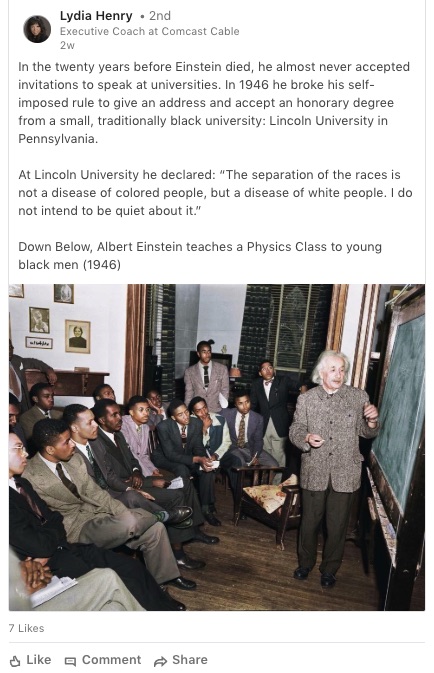You have /5 articles left.
Sign up for a free account or log in.
Let’s begin this conversation by stipulating that social media is a vehicle for (soft-to-shameless) self-promotion. LinkedIn, Twitter, and other platforms provide opportunities to “announce to the world” something you've done/are doing, or something you deem important that others should know or see.
Too, social media – and especially LinkedIn – offers opportunities to embellish individual biographies and accomplishments. (Note: if you have to proclaim yourself a “thought leader” in your LinkedIn bio, it's very likely that you are not one!)
I’ll confess that I’ve used social media, and especially LinkedIn, to promote my work: a new Digital Tweed post, the latest data on IT planning and policy issues from Campus Computing, a recent conference presentation, and the TO A DEGREE podcasts, among other activities. And yes, it's great when people I know (and many that I don’t know) LIKE a post. (Thank you one and all for the LIKE – past, present, and future).
Again, no question, I post to promote. And when you LIKE what I post, you acknowledge me. (Again, thank you for that.) But if you LIKE me (channeling Sally Field at the 1984 Oscars, “you like me, right now, you like me”), why not SHARE me?
The difference between LIKE and SHARE really is significant. LIKE is recognition that you saw my post. (Again, thank you for that!). It’s even kind of a “tier one” endorsement, of sorts. You may LIKE me because you know me, or because the post may be interesting. But LIKE is a base-level commitment. It's a message to me that says: “Hey, I saw your post; good stuff." End of story.
But if you SHARE me, you're making a more significant commitment, extending the potential reach of my post into your own social network. SHARE is a bigger, more direct, and more significant endorsement. It’s a way of saying, with props to Arthur Miller, that “attention must be paid.” (“Hey, I saw your post; good stuff." And the story continues.)
Case in point: Earlier this month on LinkedIn I saw a post about Einstein at Lincoln University. I did not know the story about Einstein’s 1946 visit to Lincoln, which is a HBCU, or the accompanying statement from Einstein that “the separation of the races is not a disease of colored people, but a disease of white people. I do not intend to be quiet about it.”

I thought others might find the Einstein story of interest. So rather than LIKE, I clicked SHARE. By doing so 270 people in my LinkedIn network eventually the viewed the Einstein post and, like me, perhaps learned something new and interesting. Moreover, some of those 270 might have clicked LIKE on my Einstein post; better, however, had they and others clicked SHARE to help disseminate the Einstein at Lincoln story into their own social networks. In contrast, had I clicked LIKE, rather than SHARE, 270 fewer people would know the story of Einstein at Lincoln University.
So, please: give some thought to LIKE vs. SHARE the next time you think about clicking on a social network post (including mine!) If you LIKE, the message is primarily to me: you saw my post, nicely done. However if you SHARE, you provide a strong endorsement and also help the post access a larger audience. By clicking SHARE you show that have deemed it worthy and are willing to help disseminate it on to others.
I (and others) will thank you for the SHARE.


